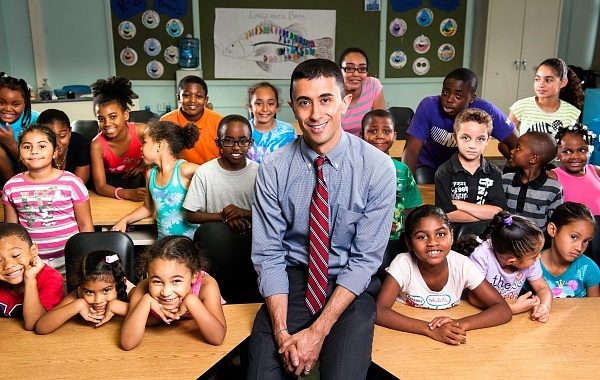Earlier this week, Paymon Rouhanifard, former Superintendent of Camden City Public Schools, hit back at “blue states” — those that are Democratically-controlled–that are ignoring the science and keeping schools closed, to the vast detriment of students. “The failure to resume the normal rhythm of schooling in historically progressive states,” he writes, “amounts to the most significant failure of public policy in a generation.”
Here are highlights from his reprimand to “progressive” states, published in Time Magazine
. Currently Rouhanifard is a member of the Massachusetts Board of Elementary and Secondary Education and CEO of Propel America, which works to “develop a new generation of upwardly mobile young adults throughout our country.”
Keeping schools closed is ignoring the science:
What began as needed and understandable caution with the onset of COVID-19 has long since veered into the irresponsible. Democratic governors, leaders of the largest teachers’ unions and many local Democratic elected officials — a cadre that regales in the blood sport of attacking Trumpism for being anti-science — have consistently disregarded the overwhelming scientific evidence that opening full-time is doable and safe for most schools. For many left-leaning and moderate voters, such as myself — particularly those with school-age children — this has proven to be an unforgivable mistake considering the downside risks associated with closures.
Progressive Democrats’ hatred of Trump has distorted their ability to sanely weigh risks and benefits:
Safely reopening schools became a debate about Trumpism itself when it should have been about meeting in the messy middle to discuss solutions and their related trade-offs. When President Trump came out in favor of opening schools in July with his usual ham-handed, irresponsible rhetoric, the left adopted a simple heuristic: if Trump is for it, then we must be against it. And we never recovered: Even after Trump left office, progressive leaders nationwide continued to engage in tribalism and political combat rather than doing a clear-eyed analysis of their options. Despite an emerging body of scientific evidence, school boards and union leaders largely dug in on their positions, and with few exceptions, seemed to be fighting to win without any objective other than winning itself.
We’re putting too much weight on government agencies that have a narrow set of priorities:
In a sane and thriving society, sober leadership and informed citizens would use values-based judgment to weigh the recommendations of the CDC against the devastating social, emotional, academic and economic costs of closure. Public policy is about trade-offs, and federal, state and local political leaders have a responsibility to determine an optimal balance of complicated benefits and drawbacks in our decision-making. Instead, it’s become a manifestation of negative partisanship driven by a desire to deny a political win to our opponents. Both sides bask in their righteousness, holding steadfastly to an absolute position, whatever the downstream effect.
Rouhanifard concludes,
Our children — their mental health, their right to an education and their overall well-being — have been merely the cost of doing business. Collateral damage. A problem we’ll get back to later. Those of us who have seen children suffer know this is unacceptable. And countless educators, psychologists and pediatricians understand the mental-health impact to students, particularly lower-income students, will be long-lasting.
It didn’t have to be this way.
For more on this, see brightbeam’s report, “The Secret Shame: How America’s Most Progressive Cities Betray Their Commitment to Educational Opportunity for All.”



